Efficient cargo handling lies at the heart of successful maritime operations, influencing everything from vessel turnaround time to operational costs. In an industry where time is money, ensuring precise measurement and control of cargo flow becomes paramount. This article delves into a transformative technology that has been gaining prominence in maritime load management—Coriolis Mass Flow Meters (CMFM). As vessels continue to evolve in size and complexity, the demand for accurate, reliable, and real-time data in cargo handling has never been more critical. CMFM, based on the principles of the Coriolis effect, has emerged as a game-changer in optimizing cargo operations, providing unprecedented accuracy and efficiency in flow measurement.
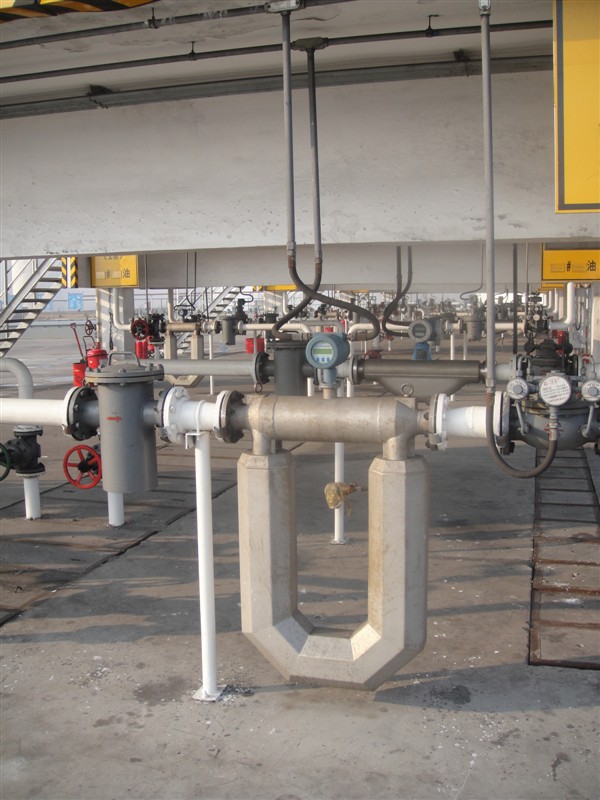
The Significance of Efficient Cargo Handling in Maritime Operations
The Importance of Streamlined Cargo Handling in Maritime Operations Streamlined cargo handling serves as a fundamental pillar in maritime operations, exerting a pivotal influence on the industry’s overall functionality and success. This essential element can be examined through various key dimensions, each underscoring the profound significance of efficient cargo handling practices.
Firstly, the impact on vessel turnaround time and operational efficiency cannot be overstated. Swift and effective cargo handling directly contributes to reducing the time vessels spend in ports, enhancing their overall operational efficiency. Delays in cargo operations can result in prolonged port stays, affecting schedules, incurring additional costs, and disrupting the intricate web of maritime logistics. A well-orchestrated cargo handling process not only expedites vessel turnaround but also ensures a smoother flow of goods in and out of ports, contributing to the industry’s competitiveness and reliability.
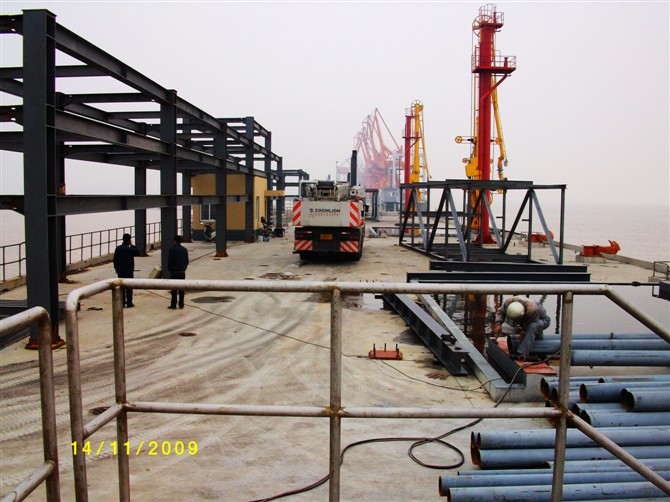
Secondly, the cost implications of inefficient cargo handling reverberate throughout the maritime supply chain. Inefficiencies can lead to increased operational costs, including labor, fuel, and maintenance expenses. Additionally, delays in cargo handling may result in penalties for missed deadlines and contractual obligations. Therefore, optimizing cargo handling processes becomes imperative for cost control and maintaining the economic viability of maritime operations.
Accurate measurement in load management emerges as another critical facet of efficient cargo handling. Precision in determining the weight and distribution of cargo ensures the vessel’s stability, compliance with safety regulations, and the prevention of accidents such as capsizing. Implementing advanced measurement technologies and adhering to standardized load management practices not only safeguards the integrity of maritime operations but also mitigates the risk of environmental incidents, contributing to sustainable and responsible shipping practices.
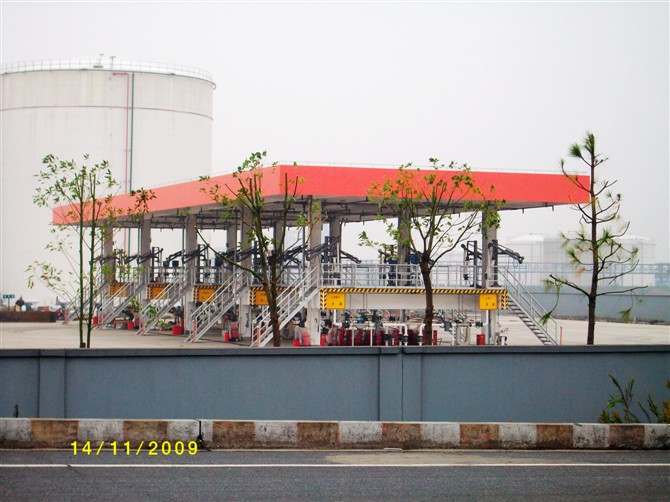
Understanding Coriolis Mass Flow Meters
Understanding Coriolis Mass Flow Meters (CMFM) is essential in the realm of flow measurement, particularly in applications such as cargo handling where precision and reliability are paramount.
The Coriolis effect, a phenomenon arising from the Earth’s rotation, forms the basis of CMFM operation. As fluids or gases flow through a vibrating tube within the meter, the Coriolis effect causes a slight distortion in the tube’s motion. This distortion is directly proportional to the mass flow rate of the substance passing through. By measuring this distortion, Coriolis Mass Flow Meters provide an accurate and direct measurement of mass flow, unaffected by variations in fluid properties such as temperature and pressure.
The functioning of CMFM involves a tube that vibrates perpendicular to the direction of fluid flow. As the fluid passes through this vibrating tube, it causes a deflection due to the Coriolis effect. Sensors detect this deflection, allowing for precise measurements of mass flow rates. This unique principle not only ensures accuracy but also eliminates the need for additional compensation or correction factors, setting CMFM apart from other flow measurement devices.
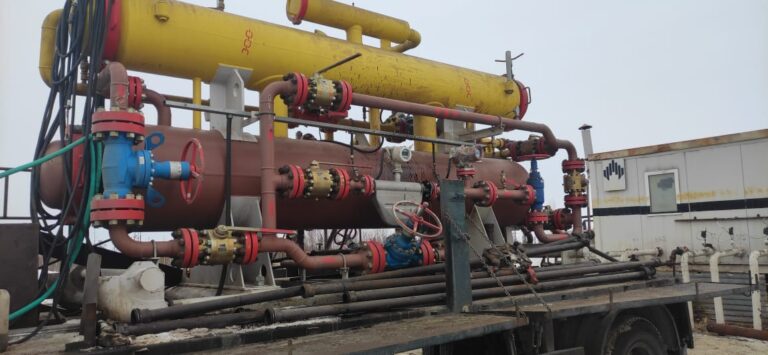
In cargo handling, where the accurate measurement of fluid or gas flow is critical, Coriolis Mass Flow Meters offer distinct advantages. One notable benefit is their ability to measure mass flow directly, providing accurate readings even in changing environmental conditions. CMFM’s immunity to external factors, such as fluid density variations, makes them highly reliable instruments in diverse cargo handling scenarios.
Moreover, CMFM can handle a wide range of fluids with varying viscosities and densities, making them versatile in industries dealing with diverse cargoes. Their compact design, low maintenance requirements, and high accuracy make them well-suited for applications where precision is crucial, such as custody transfer in oil and gas operations or the loading and unloading of chemicals in maritime transport.
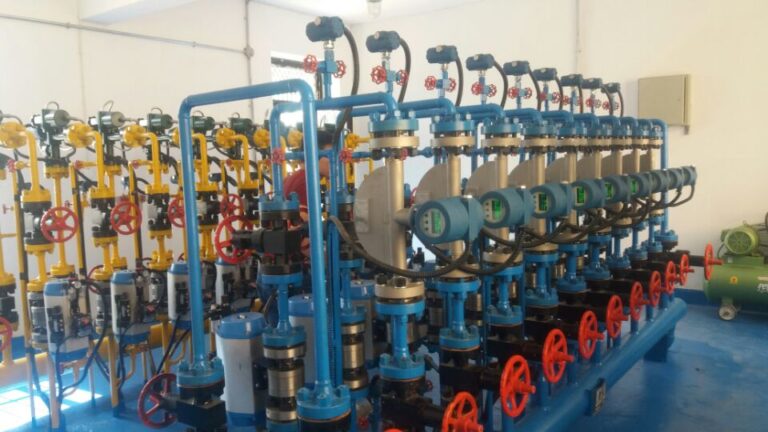
Applications of Coriolis Mass Flow Meters in Maritime Load Management
Coriolis Mass Flow Meters (CMFM) emerge as indispensable instruments in the maritime industry, specifically in the domain of load management, where precision and safety are paramount considerations.
A primary application of CMFM in maritime load management is the monitoring and control of liquid cargo flow. Whether loading or unloading liquids such as oil or chemicals, CMFM provides real-time and accurate measurements of mass flow rates. This capability not only aids in optimizing cargo loading and unloading times but also ensures that vessels are carrying the specified quantities. The instantaneous feedback from Coriolis Mass Flow Meters allows for prompt adjustments, contributing to efficient operations and preventing overloads or underfills.
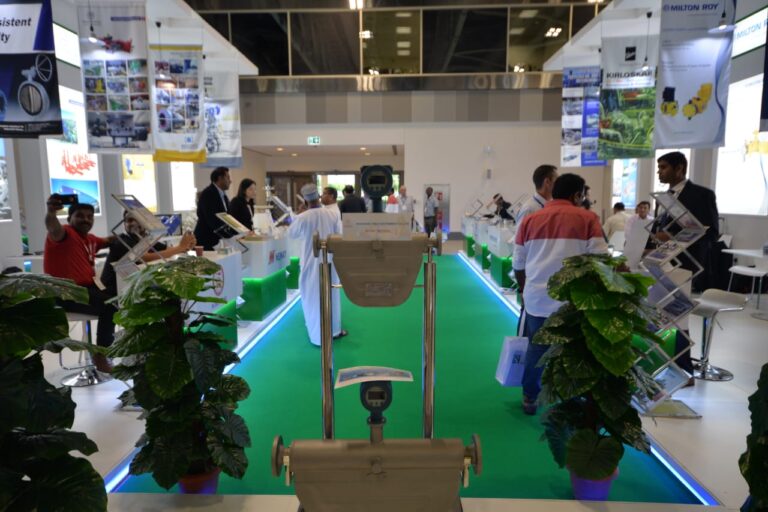
Beyond liquid cargo, Coriolis Mass Flow Meters are pivotal in guaranteeing precise measurements of bulk materials. From grains to minerals, the ability of CMFM to directly measure mass flow, unaffected by changes in material properties, offers unparalleled precision. This accuracy is instrumental in meeting regulatory requirements, minimizing financial discrepancies, and optimizing cargo space utilization, contributing to cost-effective and responsible maritime practices.
One of the most significant contributions of CMFM in maritime load management is enhancing safety in cargo handling processes. The direct measurement of mass flow rates enables the early detection of anomalies, such as sudden changes in cargo flow or potential leaks. This proactive approach helps in preventing accidents, ensuring the safety of personnel, vessels, and the environment. The real-time data provided by CMFM allows for immediate response to any irregularities, reducing the risk of spills or overflows during loading and unloading operations.
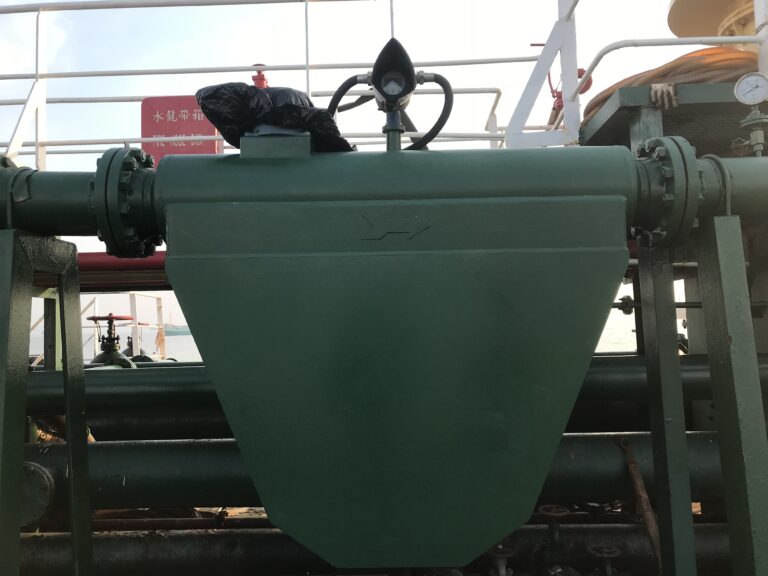
Benefits of Utilizing Coriolis Mass Flow Meters
The utilization of Coriolis Mass Flow Meters (CMFM) in various industries offers a multitude of benefits, making them an invaluable tool for accurate and efficient operations.
One primary advantage is the improved accuracy in cargo measurement. CMFM directly measures mass flow rates, eliminating the need for additional corrections or compensations based on fluid properties. Whether dealing with liquids or bulk materials, the precision of Coriolis Mass Flow Meters ensures that cargo quantities are measured with a high degree of accuracy. This not only contributes to better inventory management but also aids in adhering to regulatory requirements and industry standards.
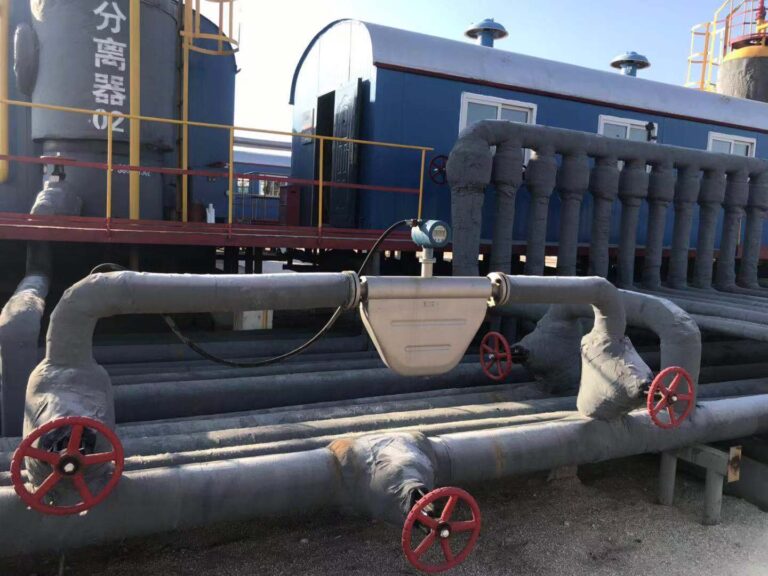
In addition to enhanced accuracy, the incorporation of CMFM leads to a reduction in operational costs and resource wastage. The direct measurement of mass flow rates allows for optimized cargo handling processes, preventing overfills or underfills that can result in financial losses and operational inefficiencies. The real-time data offered by CMFM empowers operators to promptly make necessary adjustments, reducing the potential for expensive errors and enhancing the overall efficiency of cargo operations. This efficiency translates into resource savings, making Coriolis Mass Flow Meters a cost-effective investment for industries involved in cargo handling.
Furthermore, the utilization of CMFM enhances safety and ensures compliance with industry regulations. The accurate measurement of cargo quantities contributes to safe loading and unloading processes, reducing the likelihood of accidents such as spills or overflows. The real-time monitoring capabilities of Coriolis Mass Flow Meters enable quick responses to any irregularities, promoting a safer working environment. Compliance with industry regulations becomes more seamless, as CMFM provides the necessary data to meet standards related to cargo measurement and handling.
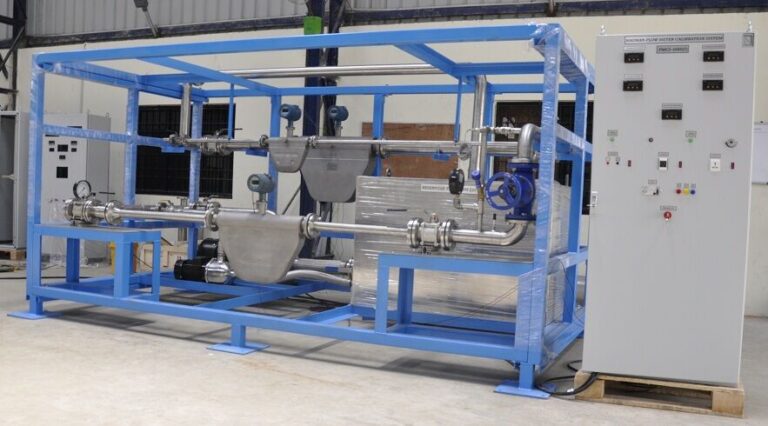
Challenges and Considerations
Implementing Coriolis Mass Flow Meters (CMFM) in maritime environments presents both challenges and critical considerations. A significant challenge lies in adapting CMFM to diverse maritime conditions. Factors such as extreme temperatures, corrosive substances, or turbulent flow patterns can impact the meter’s performance. Ensuring the robustness and durability of CMFM installations becomes imperative to withstand the harsh marine environment and maintain accurate measurements over time.
Selecting the right CMFM for specific cargo types and vessel configurations involves careful considerations. Different cargoes, whether liquid or bulk materials, may exhibit varying flow characteristics, viscosities, and densities. Compatibility with the range of cargoes handled is crucial for optimal performance. Moreover, vessel configurations and space constraints necessitate choosing CMFM designs that seamlessly integrate with existing systems. Customization options, installation flexibility, and the ability to operate in confined spaces are key factors to weigh during the selection process.
Balancing the need for precision with environmental adaptability is central to overcoming challenges and ensuring successful implementation. As the maritime industry increasingly relies on technological advancements like CMFM, addressing these challenges and making informed considerations are vital for the seamless integration and effectiveness of flow measurement systems in diverse maritime settings.
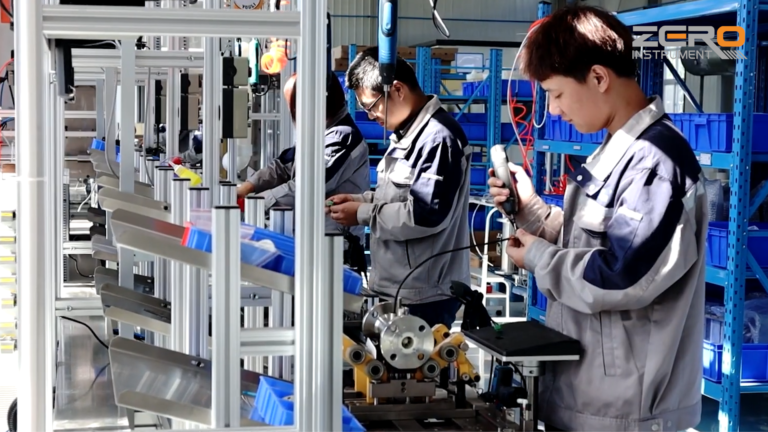
Conclusion
In conclusion, the integration of Coriolis mass flow meters in maritime load management heralds a transformative era for optimizing cargo handling. This advanced technology enhances precision, reliability, and efficiency in measuring the flow of liquids, providing real-time data crucial for maritime operations. By mitigating inaccuracies associated with traditional measurement methods, Coriolis mass flow meters empower ship operators to make informed decisions, ensuring optimal loading and distribution of cargo. The resulting benefits include improved safety, reduced operational costs, and minimized environmental impact. As the maritime sector undergoes advancements, the adoption of cutting-edge technologies like Coriolis mass flow meters becomes essential to attain unmatched efficiency in managing cargo operations.
